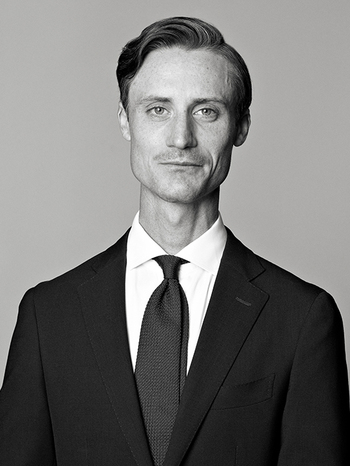Axel Petersson Döderhultarn
"Ottenbyare"
Carved and blackened wood. Length 21 cm, height 4.5 cm.
Provenance
Bukowski Auktioner, Stockholm, auction 540, Internationella Vårauktionen, 30 May - 2 June 2006, lot 242.
Literature
Hjalmar Svensson ed., " Minnesalbum över Döderhultarn och hans konst", 1928. Compare illustration p. 17.
Nationalmuseum, "Döderhultarn, Axel Petersson, 1868-1925", 1951, same motif exhibited cat. no 19, p. 12 titled "Död ottebyare".
More information
Axel Petersson Döderhultarn is one of this countrys best wooden sculptures artists, famous far beyond the borders of Sweden. In a masterly and humorous way he portrayed life in a small town in Småland around the turn of the century. Döderhultarn was a self-taught carver and is today one of Sweden's most famous sculptors. He was born in 1868 in Döderhult parish and it was after the parish, he was named Döderhultarn. All his adult life he was living and working in Oskarshamn. Döderhultarn had his big breakthrough at the age of 40 years old in 1909 and orders began to flow in. His sculptures were bought by private individuals, art collectors and museums, and he participated in many exhibitions, both in Sweden and abroad, including Paris, Copenhagen, Brighton, Rome and New York.
His figures are genuine characters and recognizable from photographs of people Döderhultarn had around him. Besides the more well-known human figures he also carved cows and horses, but even small portrait busts in more conventional style with sandpaper polished surfaces. He is usually described as a caricaturist but he was more than that which is seen in famous figures like the dead emaciated horse "ottenbyare". There are some subjects that Döderhultarn returned to often like the figure groups called Baptism, Wedding, Funeral, Auction, the District Court and a number of other typical situations from the life around him. He sculpted these subjects repeatedly but often with variations in the individual figures. The priest, the auctioneer and so on are specific individuals from the artist's home parish.
There is something very genuine with Döderhultarns art and his sculptures are still highly beloved long after his own time.
































